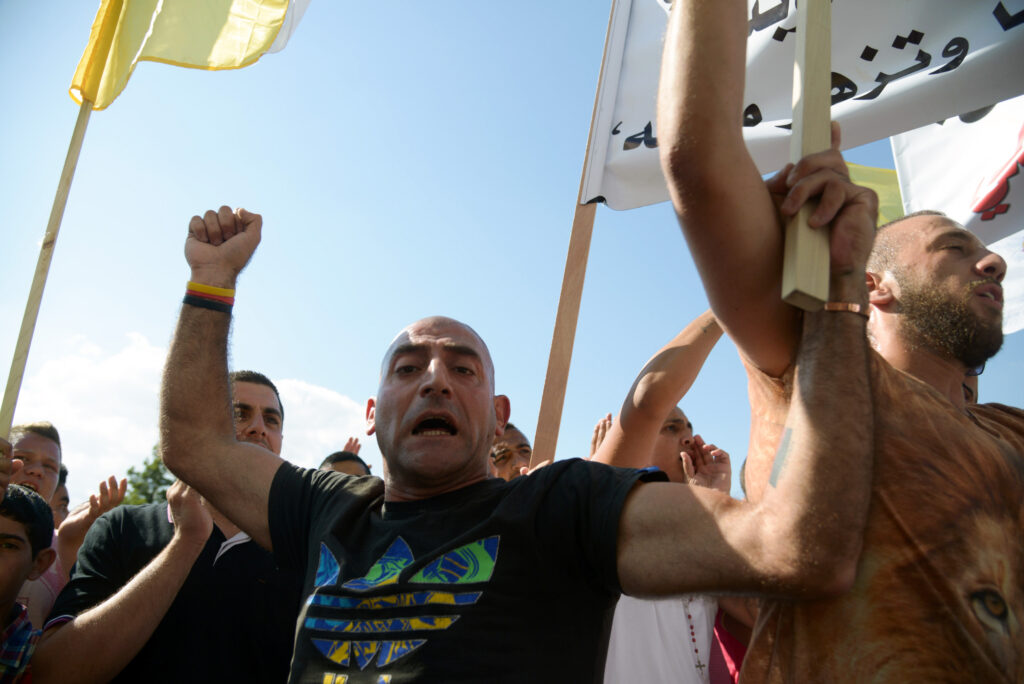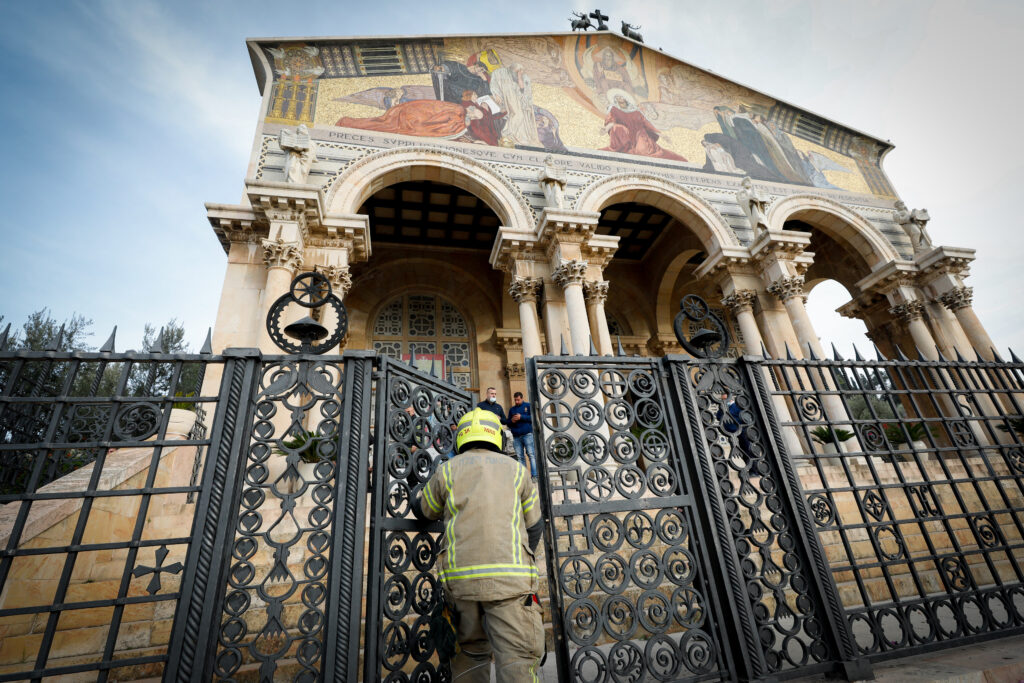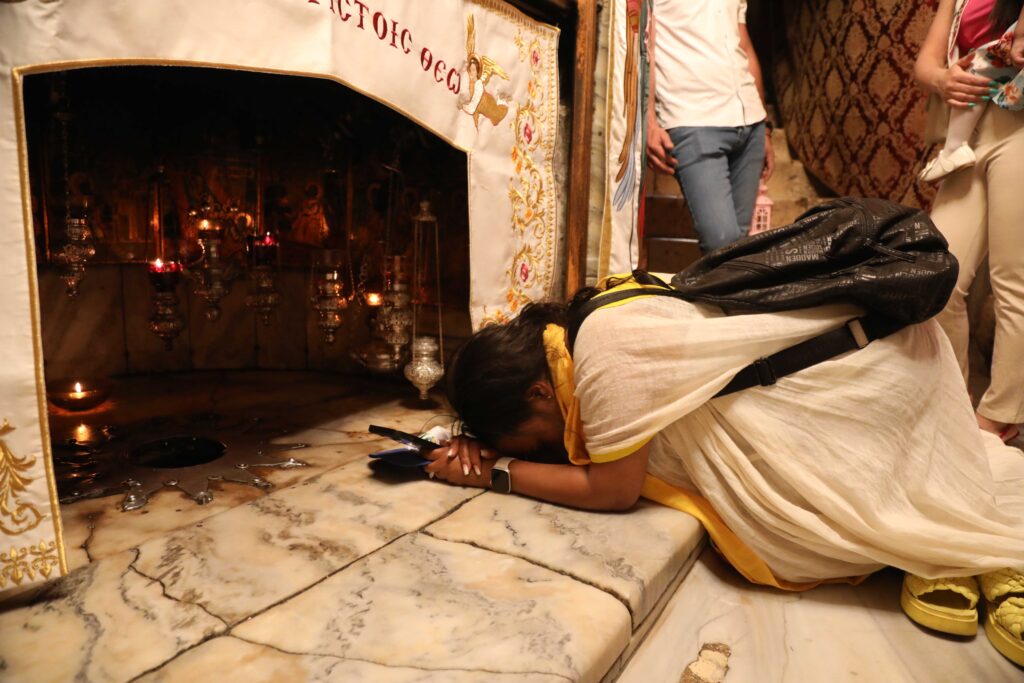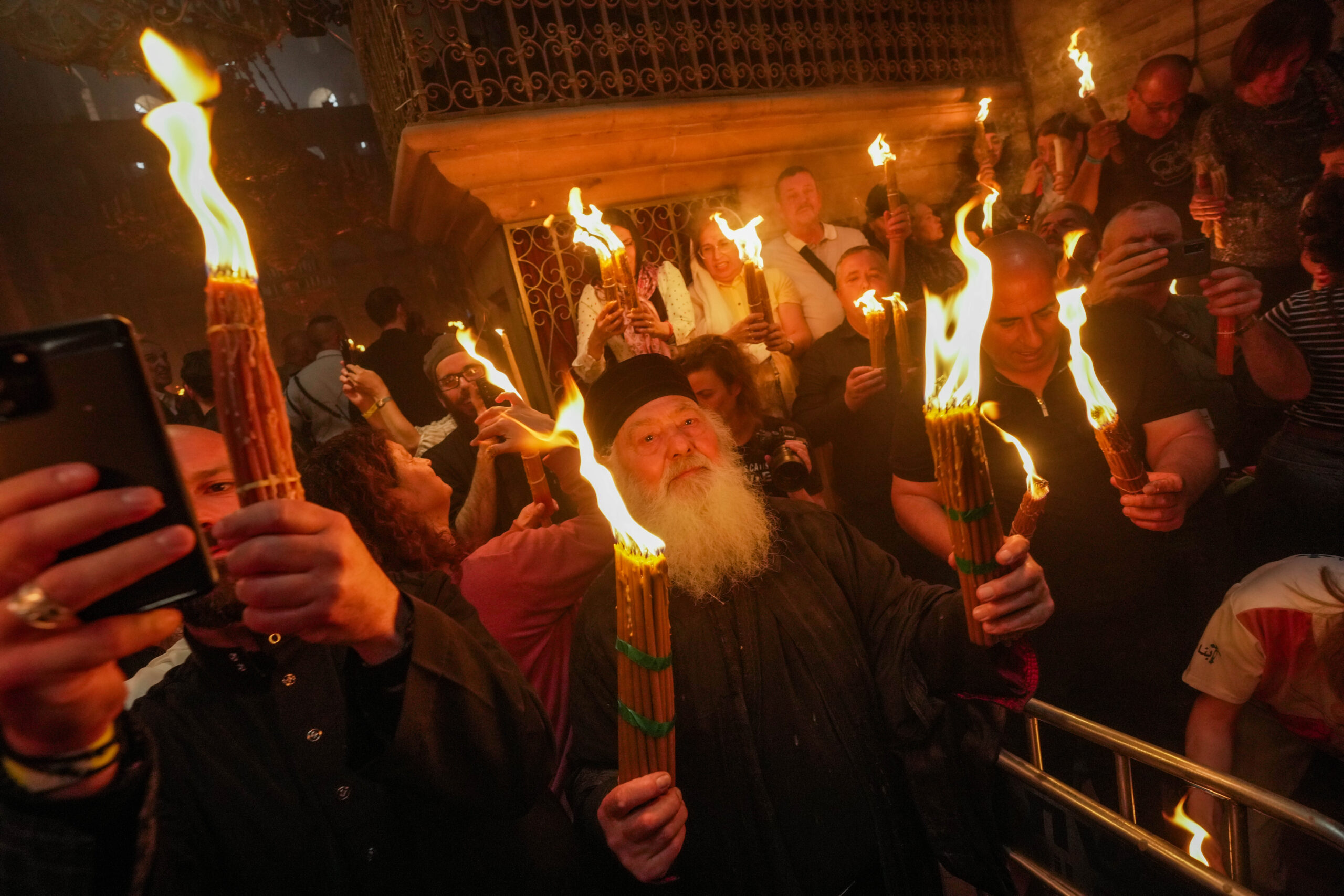The Rossing Center for Education and Dialogue recently released its second annual report documenting harassment and violence directed at Christian communities in Israel and East Jerusalem throughout 2024. Tragically, the survey reported 111 documented cases of harassment, and physical attacks emerged as the most prevalent category. Of the 47 recorded incidents, the majority targeted clergy, including monks, nuns, friars, and priests, who are often easily identifiable by their distinctive religious attire.
The most common form of physical harassment is spitting. The report also documented 35 known cases of vandalism and desecration, which targeted Christian churches and monasteries, including graffiti, stone-throwing, and arson, as well as instances of spitting within sacred spaces.
Notably, nine incidents were documented in northern Israel, including the break-in at a Catholic retreat house where sacred items were damaged and replaced with Jewish religious objects.
An uptick in attacks on Christian signage was also observed, including the defacement of street signs and symbols associated with Christianity. Several Christian pilgrim groups wishing to visit Jewish holy sites, especially on Mount Zion, were denied access. Furthermore, in multiple cases, Jewish religious individuals disrupted Christian processions with verbal abuse and insults.
Despite this statistic, a majority (58.5%) of respondents reported feeling comfortable wearing visible religious symbols, such as a cross, in places that are mixed or predominantly Israeli-Jewish, while 20.5% feel uncomfortable. Notably, the majority Muslim East Jerusalem stands out as an area of relatively high discomfort (42%).

Only one in 10 respondents reported having experienced harassment from Israeli Jews. The vast majority (88.3%) reported no experiences of harassment by Israeli Jewish citizens (such as verbal abuse, spitting, and physical assault) due to their Christian identity. However, in Central Israel and East Jerusalem, harassment is reportedly more prevalent, with 20% reporting such experiences.
Last year’s inaugural report documented 89 cases, including 32 attacks on church properties, 30 formally reported cases of spitting, and seven violent attacks, most of them against multiple victims. In the 2024 study, 111 episodes were reported, including 46 physical attacks, 35 attacks against church properties, and 13 cases of harassment.
In all known cases, the perpetrators are Jewish individuals, primarily young men from ultra-Orthodox and national-religious circles, but also seemingly marginalized individuals on the social periphery.
The Rossing Center attributed this uptick in aggression to the political environment, writing that the driving factor is “nationalist fervor and religious extremism, particularly among the Hardal (ultra-Orthodox Nationalist) groups.”
“The growing influence of extremist groups in Israeli politics has definitely contributed to an environment where religious minorities, including Christians, are increasingly vulnerable to harassment,” the report wrote. “Compounding these challenges, the socio-political climate and the devastating effects of the ongoing war have left Christians in one of their most precarious positions in recent history.”
Nearly 48% of respondents under 30 said they are considering leaving the region. While this seems to point the finger at Jewish Israelis, the report cited other factors contributing to the situation. An overwhelming majority of respondents cited problems within Arab society. 77% cited escalating violence within Arab society, as well as the broader deterioration of the socio-political situation, as their primary reasons.

The Rosing Center cited the Israel Central Bureau of Statistics, which stated that as of the end of 2024, the population of Israel was estimated at 10.027 million residents. Of this population, 7.707 million (76.9%) are Jewish, 2.104 million (21.0%) are Arab, and 0.216 million (2.1%) are classified as others, including foreign residents. Christians living in Israel are 180.300 (approx. 1.8% of the Israeli population), and 78.8% of Christians present in Israel are Arab, constituting 6.9% of the total Arab population of Israel.
According to data released in December 2024, the Christian population grew by 0.6% in 2023. It is important to note that Israel is the only country in the region in which the Christian population is growing. In many countries, Christians are horribly oppressed.
Open Doors International, an NGO monitoring the oppression of Christians, listed the top 78 countries in which Christians suffer. Israel was ranked 78th. Ironically, Open Doors cited the root cause of Christian persecution in Israel as “increasing religiosity among Arab Muslims” and “a sharp increase in crime rates among the Arab community in Israel.”
Open Doors also cited the dwindling percentage of Christians in comparison to the overall Arab community as leading to unemployment and economic oppression.
Nowhere in Israel is the oppression of Christians more palpable than in Christianity’s holiest city: Bethlehem. In 1950, Christians represented 86% of the population in Bethlehem and its surrounding villages. A 2017 census revealed that only 10% of Bethlehem’s residents were Christians. A report from the Jerusalem Center for Security and Foreign Affairs attributed the sharp decline in the Christian population to violence, weak law enforcement, and religious coercion.

In 1922, Christians comprised 11% of the population in Palestinian Authority-controlled regions. Today, they account for less than 1%. In Gaza, the Christian population has dropped from 5,000 before Hamas seized power in 2007 to just 1,000 as of October 2023.
The Vatican commented on the Rossing report, blaming the increased anti-Christian activity on “a deliberate and progressive Judaization of Jerusalem and the Holy Land”.
Rossing was established two decades ago to promote dialogue and understanding between Christians and Jews in an unprecedented situation in which Jews are the majority and Christians are the minority.





